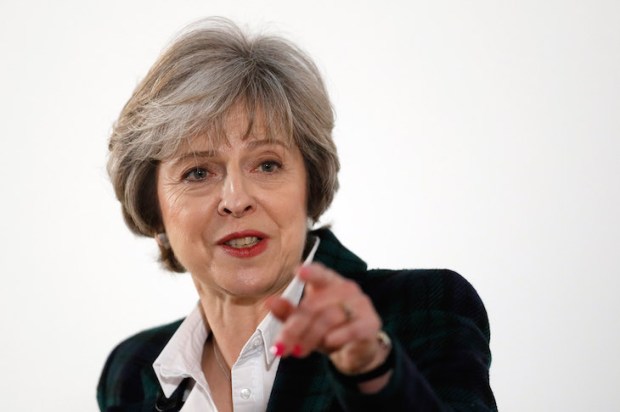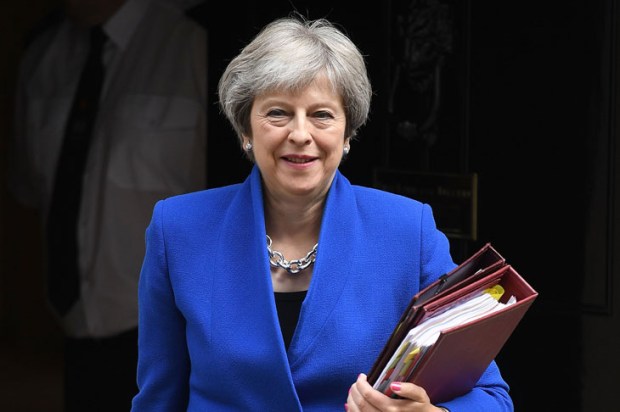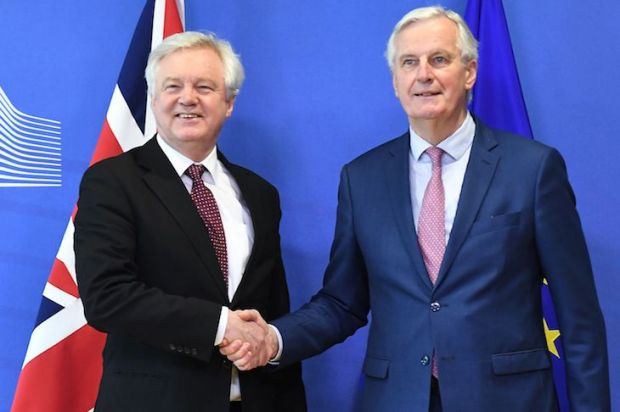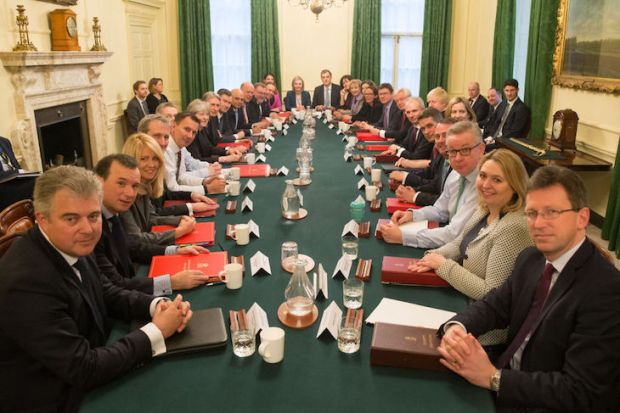Elections matter. They are fundamental to our way of life. So, while it is appropriate that the campaigns stopped on Tuesday to mourn the victims of the heinous terrorist attack in Manchester, democracy demands that they resume as quickly as possible. The terrorists must know that they will never change how our society functions.
This is an odd election. Everyone assumes they know what the result will be and the real psephological debate is over just how big the Tory majority will be. On Monday, even the most panicked Tory was only concerned about what Theresa May’s U-turn would mean for the party’s margin of victory, not the actual result. But her retreat on social care will have ramifications far beyond 8 June.
May and her team are modernisers who want to change the Tory party. But they are very different modernisers to Cameron, Osborne and the Notting Hill set. Team May is more interested in class and economics than sexuality and society. Their spirit ran through May’s manifesto. The Dilnot proposed cap on social care costs, limiting what any individual would have to pay, was rejected on the grounds that it ‘mostly benefited a small number of wealthier people’. Instead, they went for a policy that they described as ‘more equitable, within and across the generations,’ which meant that those with assets could be forced to run them down to the last £100,000 to meet the costs of their care.
This policy was a bold statement of how they wanted the Tory party to be less concerned about the worries of the better-off and less deferential to property wealth and the whole idea of inheritance. Indeed, Damian Green, one of the few Cabinet Ministers genuinely close to Mrs May, defended it by describing £100,000 as a ‘reasonable inheritance to have’. On the doorstep, Tory candidates were finding their own tribe in revolt. One loyalist minister tells me that the party’s traditional supporters were telling him that they would have to sit the election out because of the care policy. Another source, canvassing in a Labour-held seat, says that ‘you could just feel people leaving you on the doorstep over this’.
The scale of the backlash was such that May felt obliged to take the unprecedented step of U-turning on one of her manifesto centrepieces just four days after she’d unveiled it. It was another reminder of just how strongly the propertied classes in this country feel about their ability to pass on wealth to their children.
The episode showed that the May modernisers can’t have it all their own way as they try to change the Tory party. When they touch on the direct interests of their base, they will encounter resistance. As one influential Tory points out, it is revealing that even May’s immense personal popularity and the grassroots’ sense that she is one of them— she joined the party as a teenager, met her husband at a Tory disco and still goes canvassing most weekends—was not enough to persuade people to accept her manifesto position on this issue.
Many parts of the economic modernisation that May and her team wish to pursue won’t touch directly on the interests of the Tory base. Workers on boards, takeover tests and industrial strategy aren’t visceral issues in the way that inheritance is. The opposition to them will not be so intense. But this campaign chapter demonstrates that moving the party away from its instinctive sympathy for the interests of business, the better-off and the elderly will not be easy.
The last few days have also revealed how isolated the May team are. A strikingly large number of ministers took a very detached view of her manifesto troubles — there was more than a hint of schadenfreude in their reactions too. Not many senior Tories are as Christian Democratic in their political outlook as Mrs May is. Her way of working has compounded that problem. She is very good at observing the proprieties of Cabinet government, but less good about consulting on the decisions that really matter. Allies of Jeremy Hunt say he learned about the social care policy only shortly before the media did. So cabinet members don’t feel invested in defending what comes out of No. 10. ‘The lesson they should learn from this is that you can’t make policy with a small clique,’ one minister tells me.
May remains on course for a comfortable victory. She will significantly increase her majority and the Tory vote share will almost certainly be larger than it has been for 50-odd years. Before the campaign started, one would have predicted that her enhanced majority would have ended the tactical retreats and U-turns that have so characterised British politics in the last seven years. But the manifesto mess throws that into question. If the Tories still feel obliged to tack like this when comfortably ahead in the polls, then it is not clear that even a three-figure majority will result in the government defiantly ploughing on when there’s a backlash to a particular proposal.
Theresa May took a risk in going to the country three years early. So far, that gamble seems to have paid off. The public have not punished her for going back on her word and calling an election. In Scotland, it has put the Nationalists on the back foot; setting back their cause of a second independence referendum and making it that much easier for May to keep the Union together. South of the border, there has been no sign of a Lib Dem revival and huge chunks of the Ukip vote have simply fallen in behind Mrs May.
Yet undeniably, this social care row has taken some sheen off the Prime Minister. For the first time as leader, she has found herself at odds with her party’s traditional supporters and the policy reversal has undercut her image as a ‘strong and stable’ leader.
Got something to add? Join the discussion and comment below.
Get 10 issues for just $10
Subscribe to The Spectator Australia today for the next 10 magazine issues, plus full online access, for just $10.
You might disagree with half of it, but you’ll enjoy reading all of it. Try your first month for free, then just $2 a week for the remainder of your first year.















Comments
Don't miss out
Join the conversation with other Spectator Australia readers. Subscribe to leave a comment.
SUBSCRIBEAlready a subscriber? Log in